|
Hi, I am a Post Doctoral Researcher at Lawrence Livermore National Labs. I have recently completed my Ph.D from Arizona State University advised by Dr Pavan Turaga. I am also fortunate to be mentored by Jayaraman J Thiagarajan computer scientist at Lawrence Livermore National Labs. My primary focus is on computer vision and machine learning.I have spent wonderful summers as a research intern at Lawrence Livermore National Laboratory, Microsoft Research, SRI International. Email / CV / Google Scholar / Linkedin / Github |

|
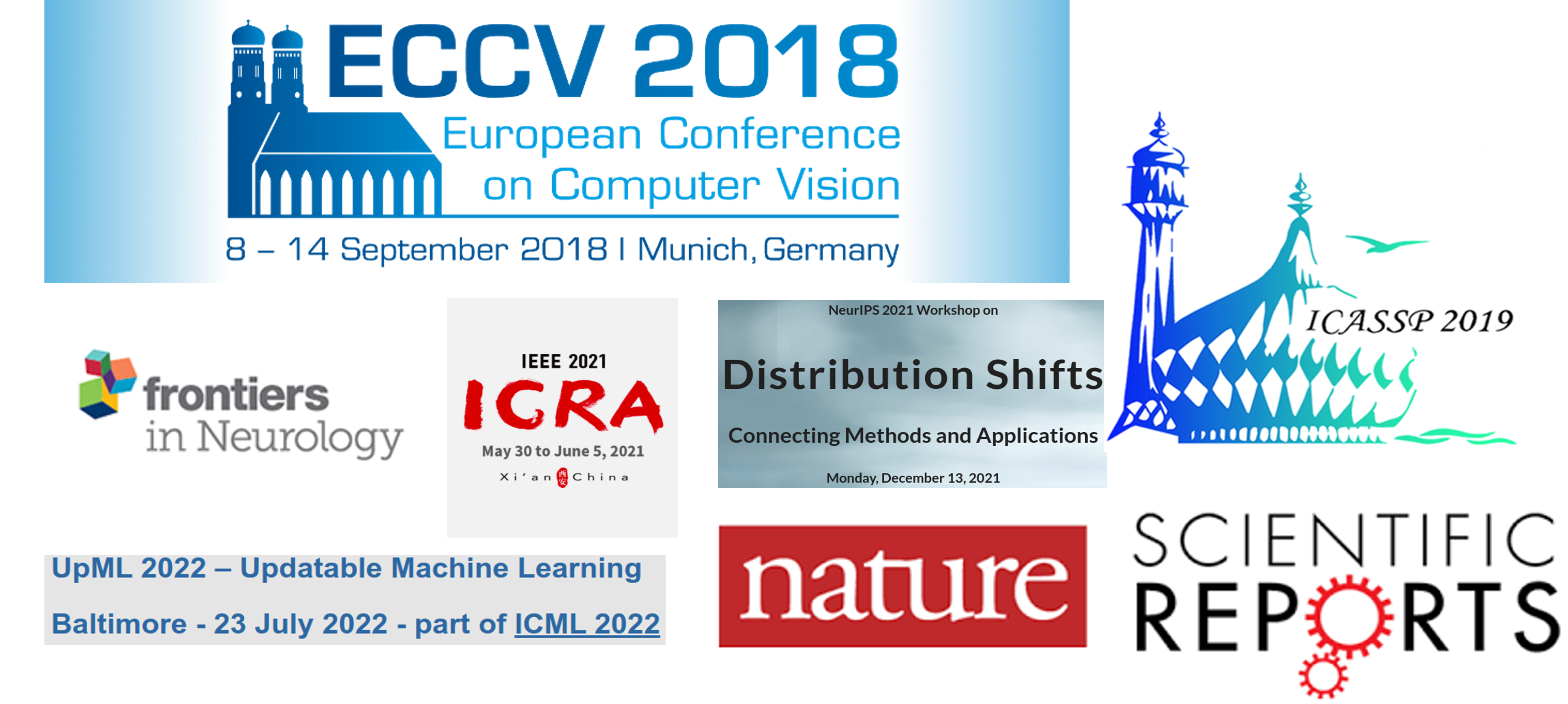
|
|
|
As a part of my Ph.D I have proposed novel principled algorithms to build robust computer vision models. Consequently, I worked on different realizations of this problem such as Domain Adaptation, Domain Generalization and Test-Time Adaptation. Another key research interest of mine is to propose algorithms to integrate domain knowledge into machine learning systems to deal with limited and noisy data in applied areas such as autonomous navigation or health care AI (home-based rehabilitation). |
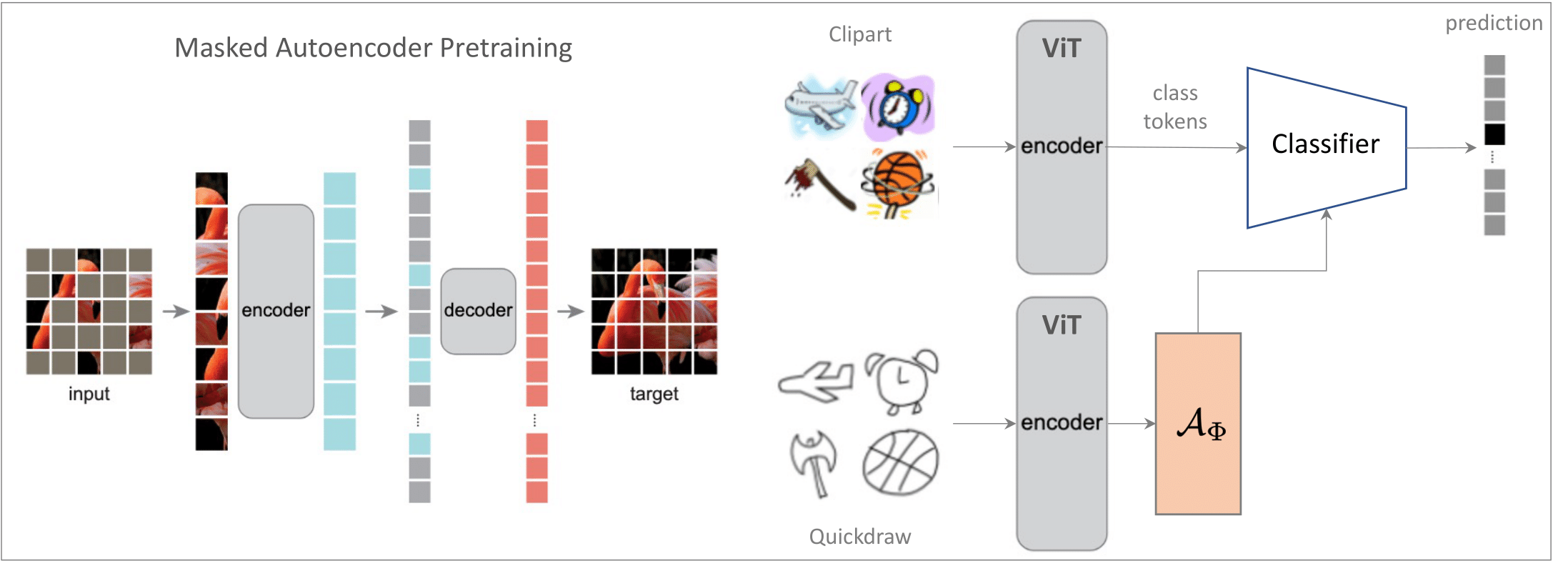
|
Kowshik Thopalli, Pavan Turaga, Jayaraman J Thiagarajan In the proceedings of Asian Conference on Machine Learning ACML In the proceedings of ICML'22 workshops UpML-Updatable Machine Learning We make the first attempt at bridging unsupervised domain adaptation and test-time adaptation without either updating the feature extractor nor requiring source data. We do this by aligning the basis vectors of subspaces spanned by source and target features. We show results with vanilla and robust ResNet-50, vision transformers on Imagenet->Imagenet-c,OfficeHome,Office-31 and DomainNet datasets. Selected as an oral presentation at the workshop. |
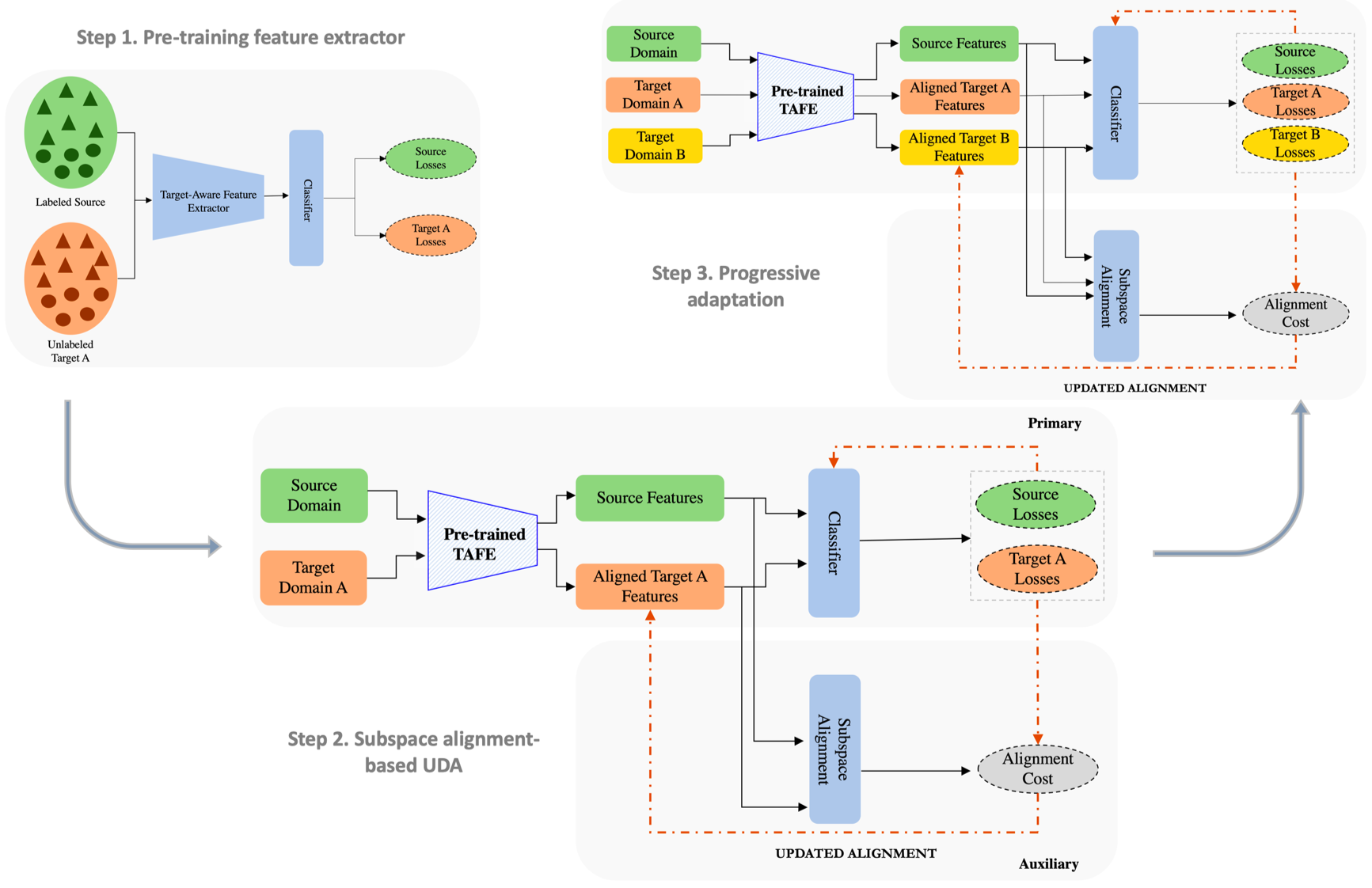
|
Kowshik Thopalli , Jayaraman J Thiagarajan, Rushil Anirudh, Pavan Turaga Published at IEEE ACCESS bibtex We propose a novel state-of-the-art visual domain adaptation method that learns a simple subspace-based alignment between source and target representations from a frozen feature extractor such that the source-trained classifier can be used to classify target without requiring additional supervision. |
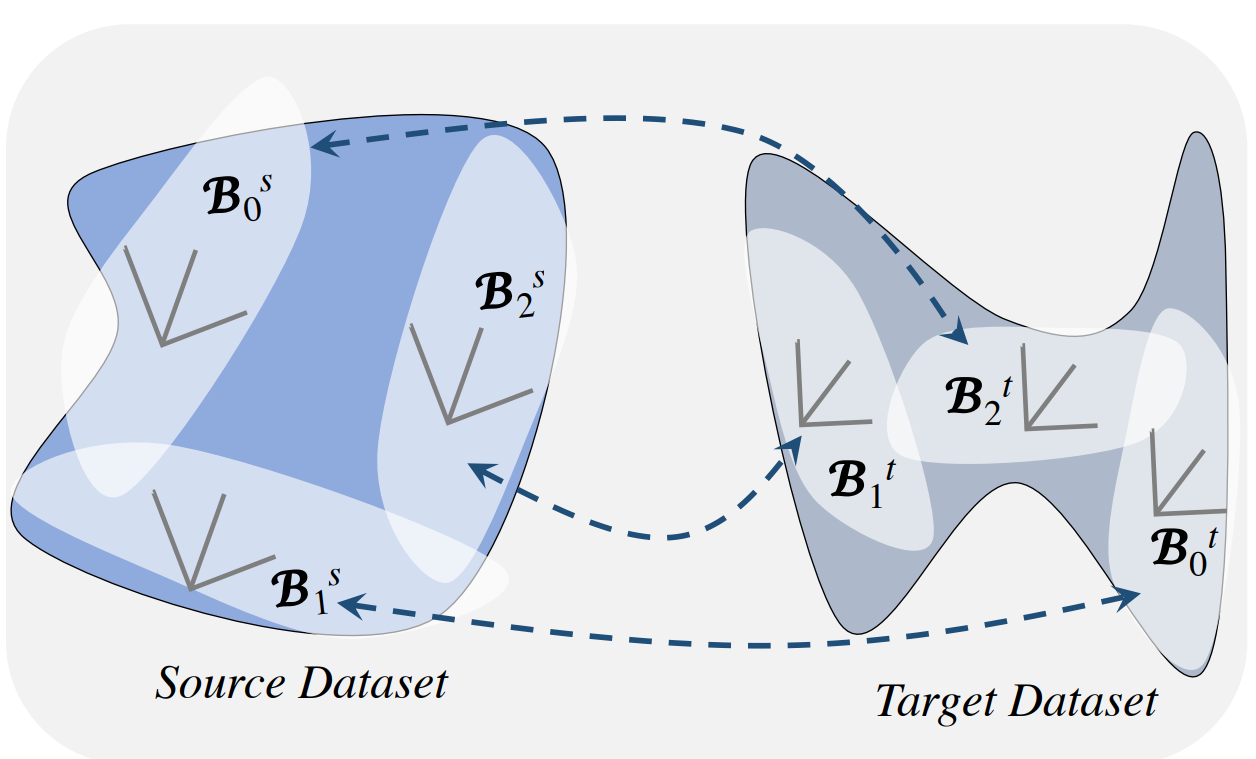
|
Kowshik Thopalli , Rushil Anirudh, Jayaraman J Thiagarajan, Pavan Turaga ICASSP 2019 - 2019 IEEE International Conference on Acoustics, Speech and Signal Processing (ICASSP) bibtex We extend the results of the seminal paper on Domain Adaptation that uses single subspace alignment to multiple subspace alignment. Specifically, we proposed two new algorithms to obtain (i) discriminative subspaces (ii) a subspace matching algorithm on the Grassmannian manifold. |
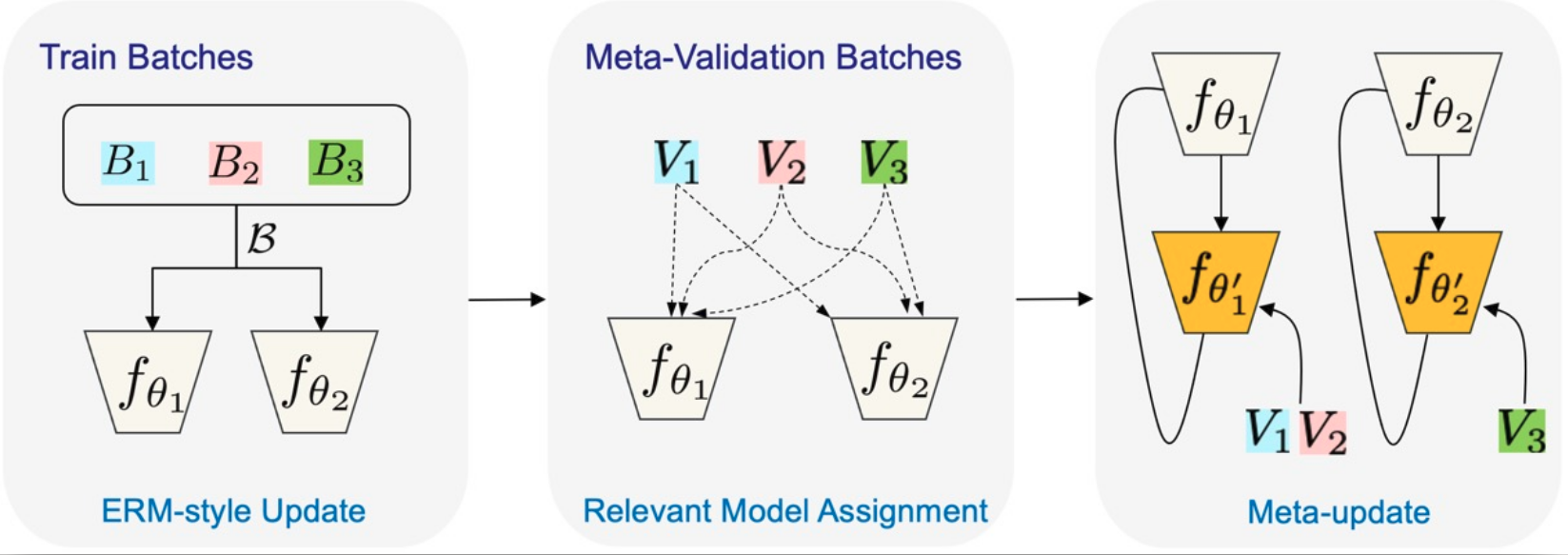
|
Kowshik Thopalli , Sameeksha Katoch, Pavan Turaga, Andreas Spanias, Jayaraman J Thiagarajan In proceedings of NeurIPS 2021 Workshop on Distribution Shifts: Connecting Methods and Applications bibtex We propose a meta-learning based ensemble-solution to solve the problem of multi-domain generalization. While similar to Mixture-of-Experts models, we remove the need of a router and propose a gradient-similarity based routing of subsets of data to different models. |
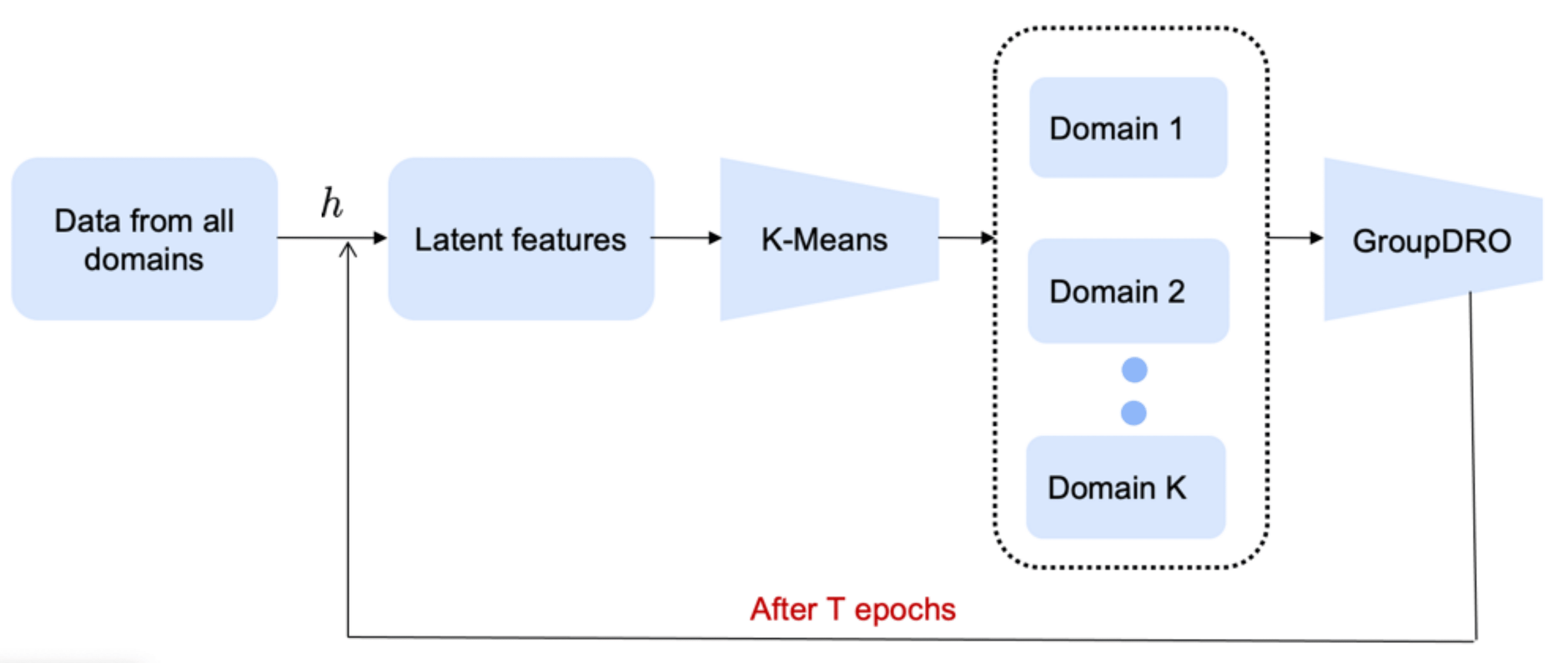
|
Kowshik Thopalli , Pavan Turaga, Jayaraman J Thiagarajan In proceedings of NeurIPS 2021 Workshop on Distribution Shifts: Connecting Methods and Applications bibtex By re-labeling the domains through simple deep-clustering approach, domain generalization performance can be improved. |

|
Kowshik Thopalli , Sameeksha Katoch, Pavan Turaga, Andreas Spanias, Jayaraman J Thiagarajan Under Review bibtex This is our journal version of our efforts in domain generalization, where we show that re-labeling either explicitly by clustering or using meta-learning will produce state-of-the-art generalization performance. |
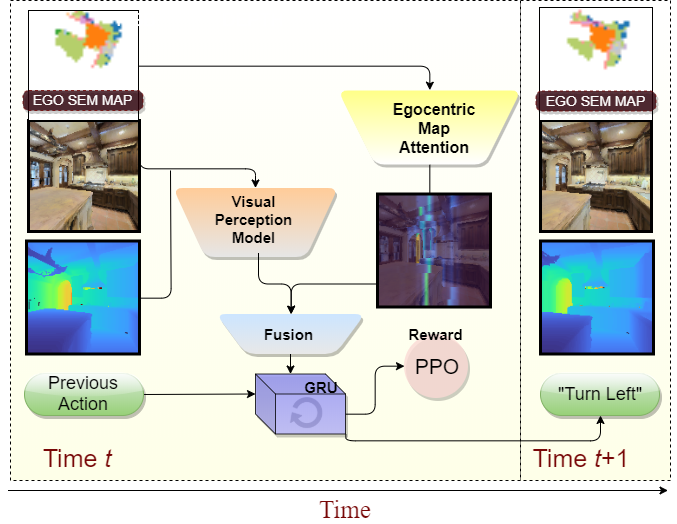
|
Zachary Seymour, Kowshik Thopalli , Niluthpol Chowdhury Mithun, Han-Pang Chiu, Supun Samarasekera, Rakesh Kumar IEEE International Conference on Robotics and Automation (ICRA), 2020 bibtex Work done at SRI International. We demonstrate that through integrating semantic knowledge and appropriate attention using transformers in to the pipeline leads to efficient visual navigation |

|
Jayaraman J Thiagarajan, Kowshik Thopalli, Deepta Rajan, Pavan Turaga, Nature Scientific Reports bibtex We propose TraCE (training calibration-based explainers) technique, which utilizes a novel uncertainty-based interval calibration strategy for reliably synthesizing counterfactuals for improved interpretability of deep medical models. TraCE can be used to obtain a holistic understanding of deep models by enabling progressive exploration of decision boundaries, to detect shortcuts, and to infer relationships between patient attributes and disease severity. |
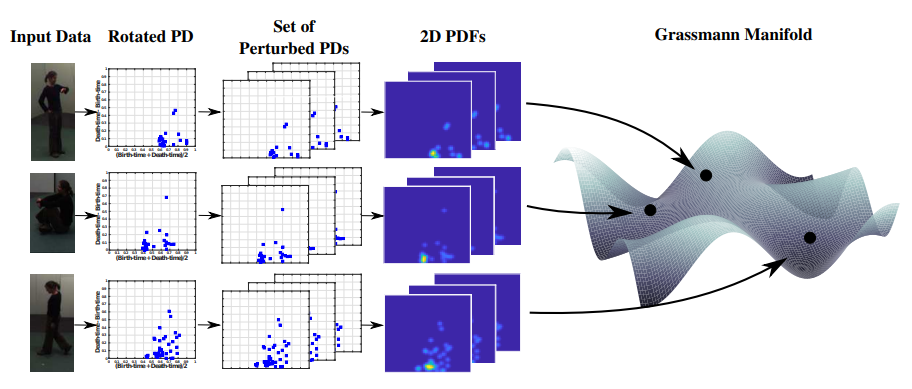
|
Kowshik Thopalli , Anirudh Som, Karthikeyan Natesan Ramamurthy, Vinay Venkataraman, Ankita shukla, Pavan Turaga Proceedings of the European Conference on Computer Vision (ECCV), 2018 bibtex Proposed a perturbation-robust representations of topological persistance diagrams for improved classification of 3d shapes, multi-view action recognition and more. Provided theoretical guarantees for convergence |
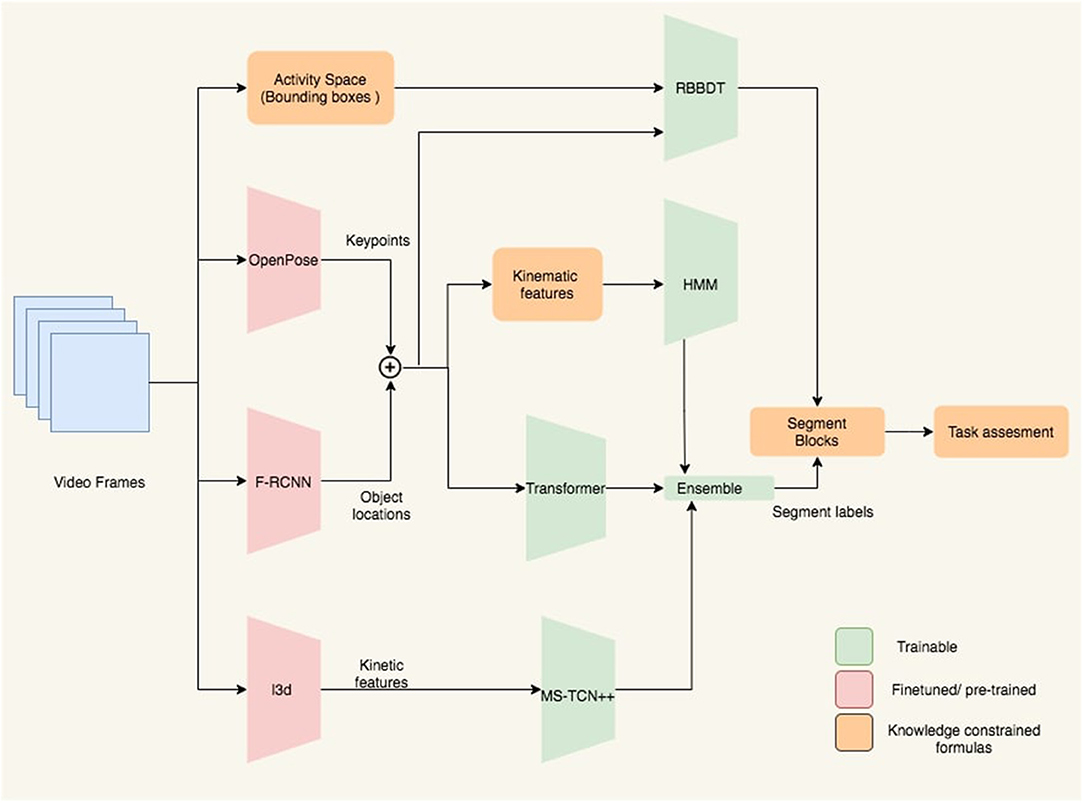
|
Kowshik Thopalli , Tamim Ahmed, Thanassis Rikakis, Pavan Turaga, Aisling Kelliher, Jia-Bin Huang, Steven L.Wolf Frontiers in Neurology bibtex We ask and attempt to answer the question-"how can we integrate domain knowledge of a therapist into machine learning models for home-based stroke rehabilitation?" Proposed a ensemble of machine-learning models whose members range from purely decision rule-based trees to purely data-driven models such as transformers. |
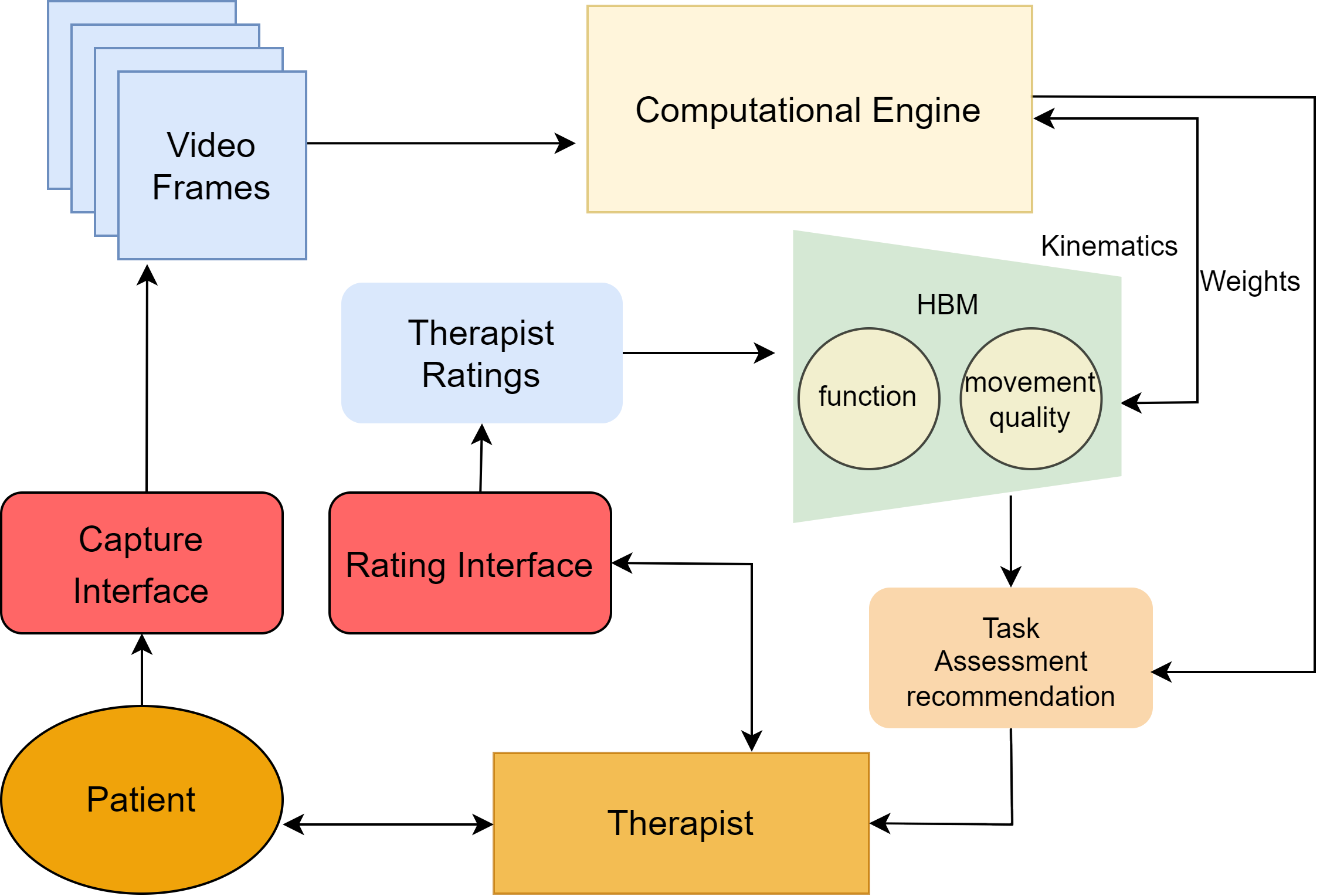
|
Tamim Ahmed, Thanassis Rikakis, Steor Zilevu, Aisling Kelliher, Kowshik Thopalli, Pavan Turaga, Steven L.Wolf Under Review at JNER bibtex Involved in development of a hierarchial bayesian models for uncovering the hidden relationship between movement and functionality in stroke victims. |
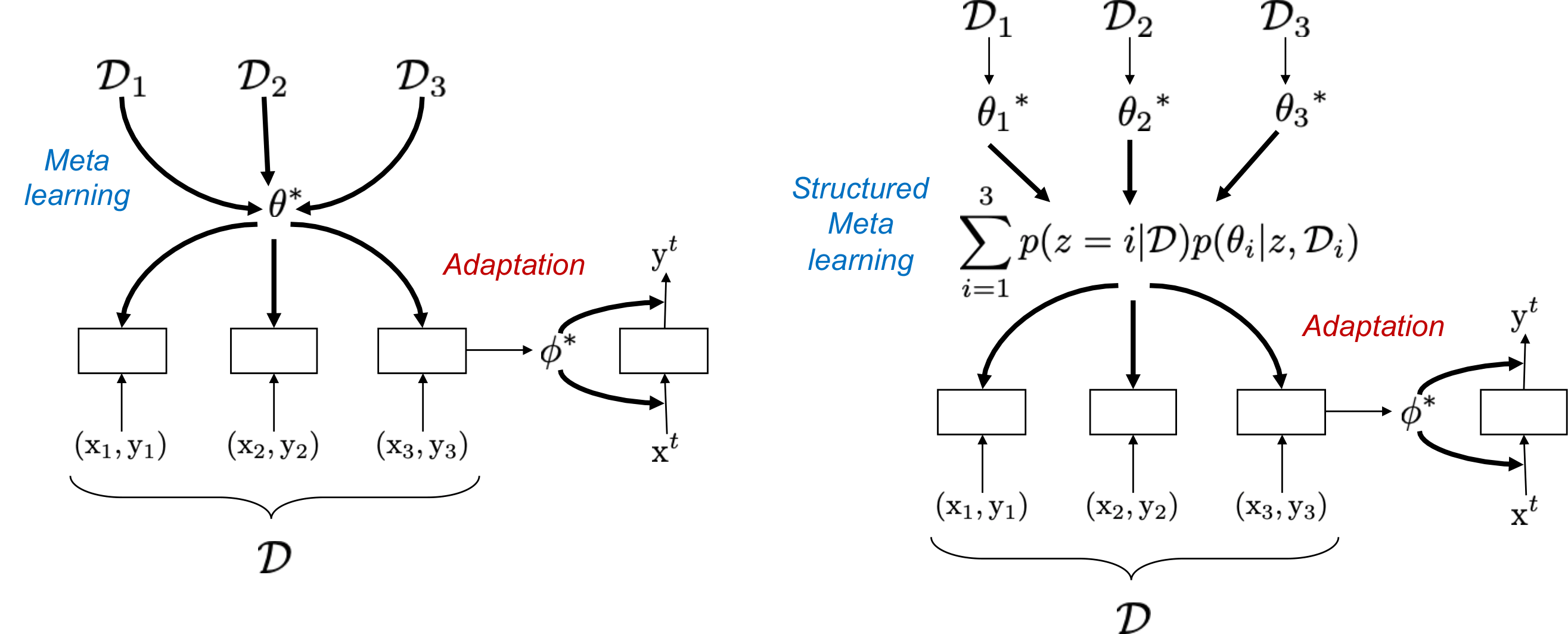
|
Sameeksha Katoch, Kowshik Thopalli, Jayaraman J Thiagarajan, Pavan Turaga, Andreas Spanias, Preprint; An improved version to be submitted to IEEE TNNLS bibtex Invenio, a self-supervised structured meta-learning algorithm to infer semantic similarities between a given set of tasks and to provide insights into the complexity of transferring knowledge between different tasks. Even under limited-data settings, we show that Invenio discovers intricate dependencies between tasks/domains, and can provide significant gains over existing approaches in terms of generalization performance. The learned semantic structure between tasks/domains from Invenio is interpretable and can be used to construct meaningful priors for tasks or domains. |
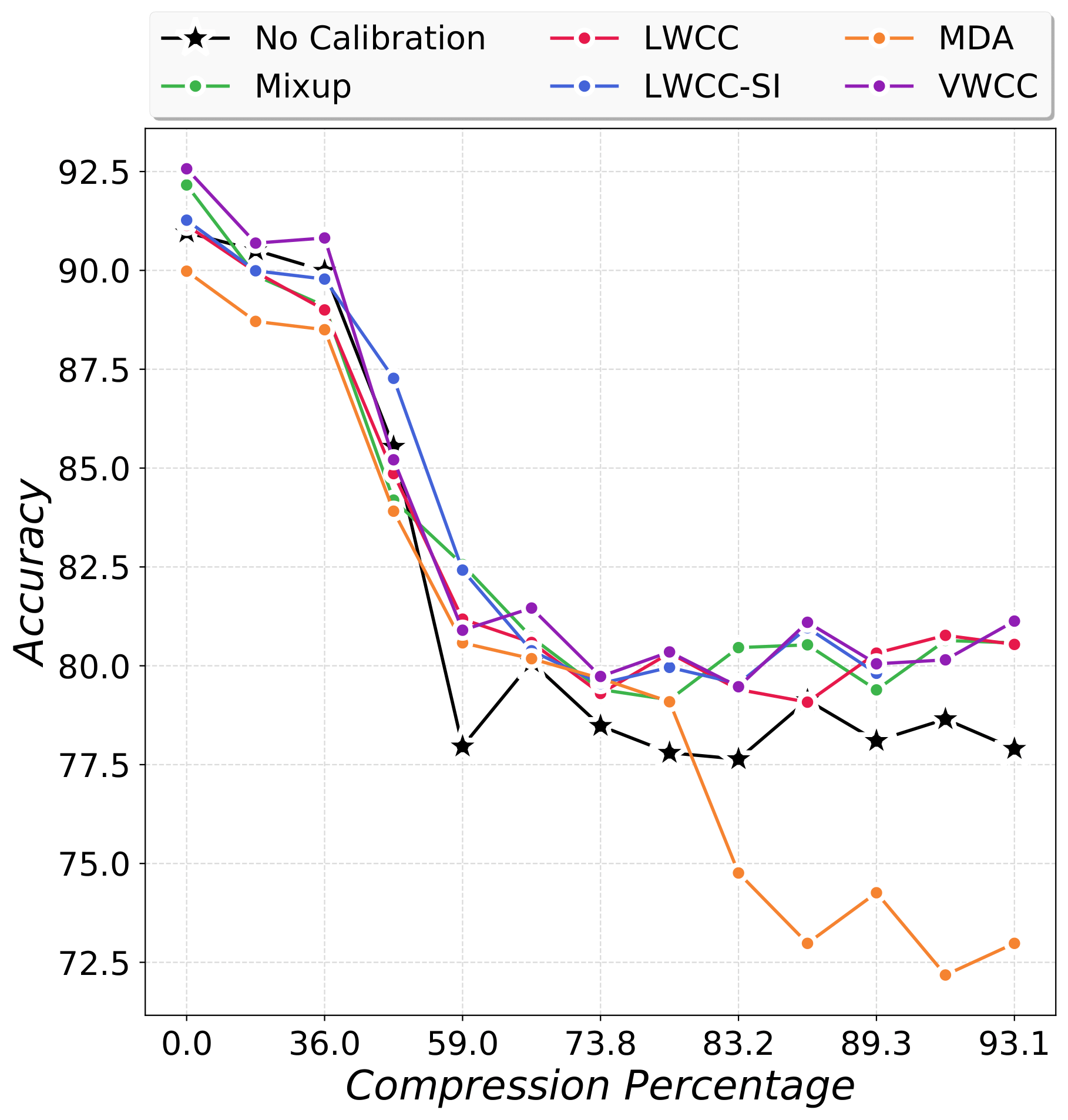
|
Bindya Venkatesh, Jayaraman J Thiagarajan, Kowshik Thopalli, Prasanna Sattigeri Preprint bibtex we study the impact of incorporating calibration strategies during model training on the quality of the resulting lottery tickets, using several evaluation metrics. More specifically, we incorporate a suite of calibration strategies and evaluate the fidelity of sub-networks retrained based on winning tickets and also the generalization performance of tickets across distributional shifts,
|
|
|
| Reviewed for major computer vision conferences and journals such as ECCV, AAAI, ICLR, IEEE TIP, WACV and many other workshops. | |
|
|
|
| Served as Teaching assistant to EEE 202- Circuits-1 and AME-520 Understanding human activity |
|
Thanks to Jonathan T. Barron for the website template |